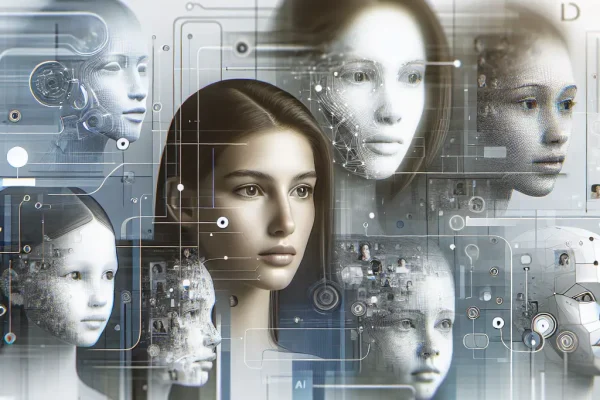Did you know? In June 2024, the Wikimedia Foundation flagged over 400 coordinated misinformation campaigns in a single month—more than double last year’s total, putting unprecedented strain on its volunteer editors and systems (Reuters, 2024). As the internet’s most trafficked encyclopedia, Wikipedia sits at the heart of public knowledge. But as digital threats surge—from AI-generated fake content to politically motivated manipulation—its foundational trust is at risk like never before.
Why should you care? Because in a world where electoral decisions, scientific breakthroughs, and health policies can pivot on a Wikipedia article, the stakes are nothing short of truth itself. In this deep dive, we expose why Wikipedia is under attack, unpack growing reliability concerns, and ask: can a community-run project outpace the mounting deluge of AI misinformation?
The Problem: Wikipedia Under Attack from New Misinformation Fronts
Coordinated Campaigns and Generative AI Vandalism
2024 has become a flashpoint year for Wikipedia reliability concerns. According to a June report from Reuters, the Wikimedia Foundation detected a shocking spike in sophisticated, coordinated manipulation attempts, with nearly half targeting political or scientific topics (Reuters, 2024).
The emergence of generative AI tools has exponentially increased both the scale and subtlety of attacks. The Guardian reports that paid editing, use of AI-generated references, and deeply embedded fake citations have surged, often crafted by advanced language models that mimic credible source formatting (The Guardian, 2024).
MIT Technology Review further warns that as large language models become more common, the line between human-curated and machine-fabricated Wikipedia content blurs, complicating efforts to determine what is trustworthy (MIT Technology Review, 2024).
Threats to Wikipedia Funding
Even as editorial challenges mount, Wikipedia’s open-source, donation-backed funding model faces headwinds. Misinformation scares can erode public trust and, in turn, jeopardize donations—the lifeblood of Wikimedia operations. As more resources are directed toward fighting AI-enabled vandalism, questions loom over whether the encyclopedia can sustain the financial onslaught. Without robust funding, essential tools for tracking, verifying, and reversing malicious edits may fall behind the technological arms race.
Why It Matters: The Human and Global Impact
If Wikipedia falls, what’s at stake? At least 500 million people rely on Wikipedia every month for information that impacts daily life. Inaccurate health articles can sway public behavior in a pandemic; slanted political histories can distort elections; fabricated climate science can impede critical policy debates.
Workforces, students, journalists, and researchers depend on Wikipedia’s reliability in a world of information overload. Erosion of trust undermines social cohesion, feeds echo chambers, and amplifies polarization. As the platform becomes a battleground for truth, its fate resonates far beyond the digital realm.
- Education: Millions of teachers and students cite Wikipedia daily for assignments and research.
- Healthcare: Top Google search results often feature Wikipedia, influencing patient decisions.
- Democracy: Voters in dozens of countries refer to Wikipedia for policy, candidate background, and current events.
Expert Insights & Data: How Does Wikipedia Fight Misinformation?
How Wikipedia Stays Accurate: Layers of Community Defense
Wikipedia’s primary weapon is its vast, vigilant volunteer base: more than 280,000 editors reviewing millions of daily changes. Ultra-active pages—like those about COVID-19 or controversial events—are sometimes locked so only trusted users can edit them, an approach called page protection. Bots also play a pivotal role, using machine learning to flag likely vandalism in real time.
Yet, editors report that AI-generated text is harder to detect: “It looks authoritative, cites sources, and blends in, making it more insidious than classic vandalism”, says Wikimedia Foundation’s head of trust and safety (MIT Technology Review, 2024).
- Stat Alert: In the past year, AI-generated or AI-assisted Wikipedia content increased by 140%, per Foundation estimates (The Guardian, 2024).
- Reports of organized misinformation “sockpuppet” accounts jumped by over 80% compared to 2022.
How Wikipedia Deals with Vandalism
Wikipedia’s multi-layered defense includes sophisticated edit filters, global lists of flagged accounts, and human review cycles. However, experts warn that AI-generated misinformation is increasingly able to bypass these checks. As the system automates, attackers automate in turn, creating a relentless informational arms race. Discussions are underway on deploying dedicated AI-vetting bots to detect falsehoods generated by large language models, but even these tools risk being outpaced by cutting-edge generative technology.
Wikipedia vs AI Misinformation: Can Human Oversight Win?
The current consensus: algorithmic detection and human vigilance must work in tandem. But with editorial workloads surging, burnout and demotivation among veteran volunteers loom as major challenges. Leading experts suggest that foundational innovations in transparency, citation verification, and multi-factor source checking are essential to future Wikipedia reliability (MIT Technology Review, 2024).
Future Outlook: Challenges Wikipedia Faces in 2024 and Beyond
- Deepfake Evidence: As deepfake images, audio, and even videos of “witnesses” proliferate, citations can be forged with astounding realism; this will make traditional verification increasingly difficult.
- Automated Mass Editing: Malicious actors could deploy swarms of bots to edit thousands of pages at once, outstripping human review capabilities.
- Funding Pressures: As the costs of combating misinformation rise, so do threats to Wikipedia’s financial sustainability. This could force the platform to consider new funding or moderation models, altering its open-access DNA.
Opportunities:
- AI for Good: Develop new AI tools to assist trusted editors in detecting subtle patterns of misinformation more efficiently.
- Transparency Upgrades: Innovations such as edit provenance tracking and blockchain-based citation chains.
- Public Education: Improving digital literacy and teaching users how to critically evaluate sources—including Wikipedia itself.
Case Study: Wikipedia vs. AI—Who’s Winning?
Visualize the Battle: Chart Suggestion
“Growth of AI-Generated Edits vs. Manual Reversions: 2020–2024”. A line chart comparing the monthly percentage of edits flagged as AI-origin (increasing sharply since 2022) versus successful human or bot reversions (plateauing or struggling to keep pace). Commentary: As AI-generated misinformation accelerates, the pace of human-led corrections risks falling behind, underscoring the mounting challenge in 2024.
Related Links
- [External: MIT Technology Review on AI misinformation]
- [External: NASA report on digital authentication]
- [External: WSJ article on AI deepfake threats in 2024]
FAQs: Wikipedia Reliability, Misinformation, and 2024’s Unique Challenges
Is Wikipedia trustworthy in 2024?
Wikipedia’s openness is its greatest strength and its biggest vulnerability. While it remains a vital resource, rising AI-driven manipulation campaigns require users to be more discerning than ever. Understanding how Wikipedia stays accurate—through a blend of community oversight and tech tools—should factor into how much you trust what you read.
How does Wikipedia fight misinformation?
Wikipedia employs edit filters, advanced bots, manual review, and community reporting to spot and tackle misinformation fast. Increasingly, the platform is investing in AI tools to both detect and counter AI-generated vandalism (MIT Technology Review, 2024).
What are the reliability concerns facing Wikipedia today?
Chief concerns include AI-fueled fake references, paid editing, and the challenge of keeping up with the volume of subtle falsehoods introduced by machine-generated text. Funding and editor burnout further complicate the picture (The Guardian, 2024).
How is Wikipedia dealing with vandalism in the AI era?
Wikipedia combines technical edit filters, page protection, expanded use of AI-driven bots, and increased recruitment of trusted editors to fight back. However, the sophistication of AI vandalism remains a moving target.
What challenges does Wikipedia face in 2024?
A perfect storm: surging AI misinformation, deepfake evidence, coordinated manipulation campaigns, threats to Wikipedia funding, and the risk of editor burnout.
Conclusion: Wikipedia’s Crossroads—Your Truth, Their Battle
Wikipedia under attack is not just tech news; it’s a wake-up call for anyone who relies on public knowledge. As the frontlines of the internet’s truth project shift in the AI era, the real question becomes: can transparency and a global volunteer army prevail over relentless digital misinformation? In the battle for reliable open information, vigilance—not blind trust—is your best ally.
Share this with someone who still believes “I read it on Wikipedia” is always the last word.


